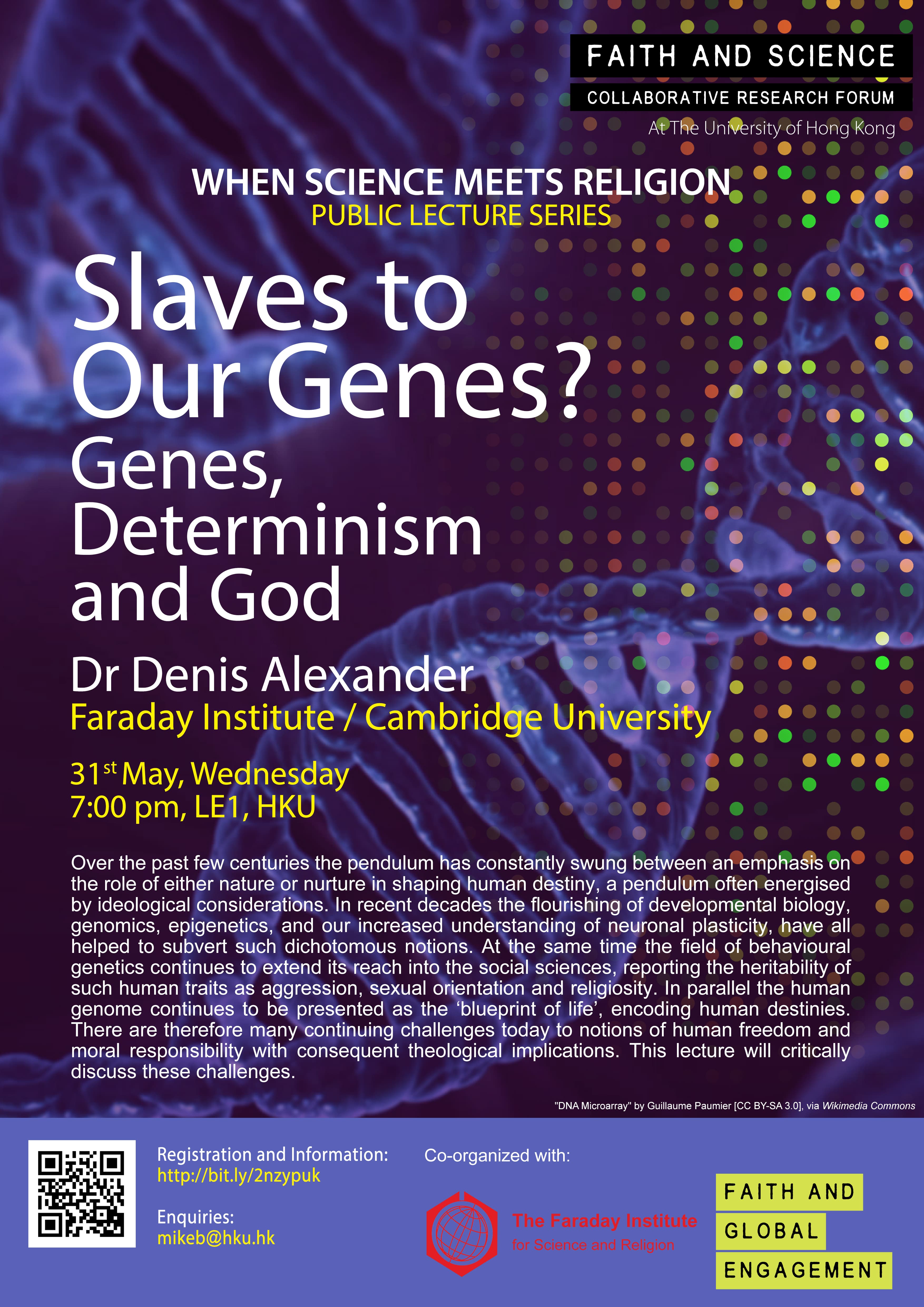Slaves to our genes? Genes, Determinism and God
Dr. Denis Alexander (Cambridge)
Denis Alexander provides an engaging approach to the question of what it means to be human. With insights from genetics, philosophy and theology, Alexander shows that contemporary science is a gift to natural theology and that theology and science can indeed learn from and support one another.
About the talk
The old, bad days of hard genetic determinism are thankfully behind us. But there is a new more subtle form of genetic determinism that tends to be soaked up unthinkingly from our cultural environment, in the process challenging the validity of human freedom. The media still insists on reporting the discovery of a gene ‘for’ a particular human trait, be it for aggression, addiction, sexual orientation or religiosity. “It’s in the DNA of x” has come into our daily speech to refer to something that is supposedly unchangeable in an organisation or social enterprise. There remains an assumption that human identity reflects two often conflicting forces, those provided by nature/nurture, or genes/environment. This lecture challenges all these assumptions by highlighting the latest research on molecular biology and human developmental biology. A model based more on interactionism and integration is presented to take the place of models that highlight dichotomous pairings. The scope, value and limitations of human behavioural genetics are discussed. Taken overall, contemporary science points to a less fragmented, more integrated view of human personhood. This brings the science into a natural conversation with theology via the helpful bridge provided by the ancient idea of humankind made in the image of God. This powerful framework for understanding human identity guarantees the value of each individual irrespective of their genetic endowment and highlights the moral responsibilities and duties placed upon humankind, implying genuine choice. Far from being slaves to our genes, it is the possession of our particular human genome that contributes so powerfully to the human development that leads to genuine free will.
About the speaker
Dr Denis Alexander is the Emeritus Director of The Faraday Institute for Science and Religion, St. Edmund’s College, Cambridge, where he is a Fellow. He was previously Chair of the Immunology Programme and Head of the Laboratory of Lymphocyte Signalling and Development at The Babraham Institute, Cambridge. His Gifford Lectures are due to appear under the title Genes, Determinism and God in July 2017 [Cambridge University Press].
Dr Alexander will also hold a discussion at City U for scientists called How to be a Christian and a Scientist.


